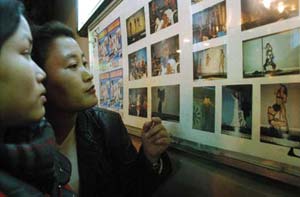In preparation for the 2002 FIFA World Cup Korea/Japan and the Busan Asian Games, the government has recently come up with comprehensive measures against illegal immigration and plans to revise the Enforcement Decree of the Immigration Act. However, such measures have come under fire for having no bearing on the real problems faced by migrant workers in Korea.
80% of the 300 thousand migrant workers 'illegal immigrants'
Realistic institutional improvements needed such as abolishment of the industrial trainee system
The Joint Committee for Migrant Workers in Korea and other related organizations issued a statement on March 19 harshly criticizing the government's measures and revision plans, saying, "It seems as if the government has come up with a fundamental solution to the human rights violation suffered by migrant workers in Korea. However, the government ignores the fact that its expedient and unlawful industrial trainee system is the root of human rights violations, and distorts the situation to lay all responsibility at the illegal migrant workers' door."

It has been ten years since the first migrant workers set foot in Korea with industrial trainee visas in October 1991. There are more than 261 thousand illegal migrant workers in Korea as of February 2002. This accounts for more than 80% of the total of 300 thousand migrant workers in Korea.
Until now, a large number of these migrant workers have been forced to escape the trainee system to become illegal immigrants, unable to bear the exorbitant remittance costs, confiscation of IDs, forced labor, physical abuse on the job, forced income savings and so on. Thus the legal industrial trainee system is what is producing illegal immigrants.
This situation definitely has something to do with the fact that Korea has a very poor human rights index and is considered a 'strange country where law breaking far exceeds law abiding.' That is why relevant organizations are calling on the government to turn away from administrative expediency to work towards practical, institutional improvements such as abolishment of the industrial trainee system and the establishment of working permits. It is high time that we initiate earnest discussions to acknowledge migrant workers, take stock of their problems, and help them work in Korea with legitimate status and basic labor rights.

